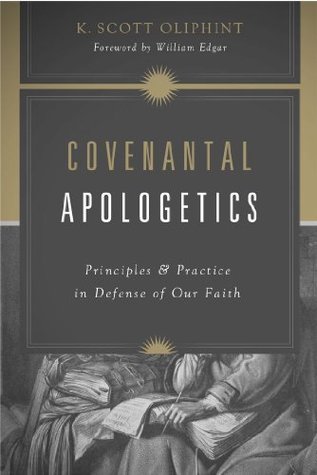More on this book
Community
Kindle Notes & Highlights
Christian apologetics is the application of biblical truth to unbelief. It’s really no more complicated than that.
Christopher liked this
If the image of God is analogous to an image in a mirror, then we realize that the original must be at all times present, in front of the mirror, in order for there to be an image at all. But we also see that the image, as image, while reflecting the original, depends at every second on the presence of the original for its very existence. If the original is no longer present, the image is gone. Image is essentially dependent, for its existence and every one of its characteristics, on the original. The original, however, is in no way dependent on that image in order to be what it is.
...more
The ethos of Jesus himself, we will remember, was called into serious question by some. He was called a “Samaritan” and was accused of being possessed by a demon (John 8:48, 52). The measuring rod by which we judge the ethos of persuasion, then, must be something other than what our audience, be it many people or one person, might think; it must be Scripture itself.
We are not called to be intellectually superior or rhetorically better than those to whom we speak. We are not in an intellectual contest when we do apologetics. We are in a spiritual battle in which only the Spirit of Christ can conquer the true enemy.
As the “measuring rod,” Scripture sets the parameters within which we live and think. It does not destroy or essentially alter the world; it guides our understanding of it. I should say at this point that the only alternative to this scenario is that we assume we ourselves are able, in and of ourselves, either individually or as a group, to determine these things. Surely the history of thought has shown this to be highly suspect, at best.
It is useful to think about the task of defending the faith as a task of “premeditated evangelism.” It is evangelism in that our goal is a defense of, and thus a communication of, the Christian faith. That point should be clear by now. It is also premeditated in that our defense includes our own thinking and analysis of the implications of our Christian faith to situations, problems, attacks, and objections that might come our way.


